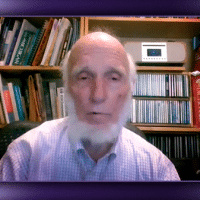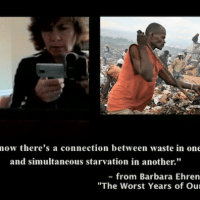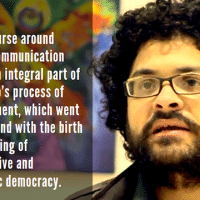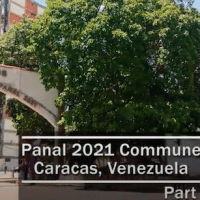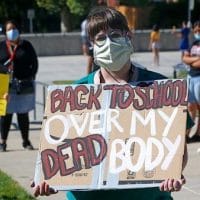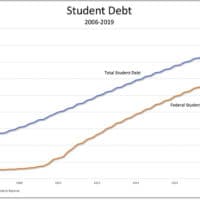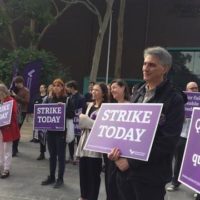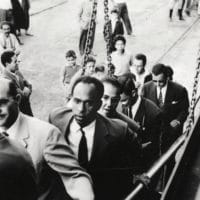-
On Contact: Teaching of history as indoctrination
On the show this week, Chris Hedges discusses the teaching of history as a form of indoctrination with Professor James W. Loewen.
-
“Your Economics Professor Is Almost Certainly a Charlatan”
Mary Filippo began in 2004 to audit economics classes in the hope that she could “learn something about globalization. Does it really help people in developing countries? What are its downsides?” She did not learn these things.
-
Alba TV’s new model for communication: A conversation with Pablo Kunich
The coordinator of a media platform that works with social movements talks to VA about the history and challenges of popular communication.
-
In Commune: The Panal 2021 Commune (Part 2)
In this series, In Commune, Venezuelanalysis will explore different experiences of rural and urban communes to help better understand what these highly controversial bodies mean, how they have been put into practice, and what they could signify for the continuity of the Bolivarian Revolution in the current situation of political and economic imperialist aggression.
-
White House brands teachers “essential workers” to force reopening of schools
The comparison between teachers and meatpacking workers is highly significant and must be taken as a sharp warning by teachers and all education workers.
-
Mask-to-mask instruction may be more problematic than distance learning
People talk about the upcoming school year as if we have a choice between in-person classes or distance learning.
-
Corporate university—pandemic edition
Will colleges and universities reopen in the fall? That’s the question on the minds of many these day—administrators, faculty, staff, students, and their families, not to mention the communities in which they live.
-
#Unis4all: An Open Letter to the U.S. Higher Education Community
Universities can immediately bypass feckless state & federal legislatures & finance themselves directly with “Unis” supported by the Federal Reserve For a growing majority of outspoken administrators and faculty, the economic fallout associated with the Covid-19 crisis threatens to catapult U. S. higher education into a draconian age of austerity, layoffs, and closures. The question, […]
-
New York: Parent groups denounce Cuomo outreach to Gates
Only minutes after news broke that Governor Cuomo had asked Bill Gates and his foundation to help “reimagine” education in New York, parent groups responded with a loud NO!
-
How a Trump administration official is quietly exploiting the pandemic to advance her family business — and right-wing agenda
As school districts reported huge problems with converting classroom learning into online instruction delivered to students’ homes, often due to lack of funding for internet-capable devices and Wi-Fi hotspots, charter school proponents spread the news of how their industry could take advantage of emergency aid.
-
Student debt jubilee—pandemic edition
The United States is currently experiencing a dystopian orgy of death and destruction.
-
Problem with what’s taught in school || Spoken Word
The Problem with whats taught in School. What do you think? Comments? Thoughts? Lets start a conversation.
-
#MintTheCoin & COVID Relief with the Modern Money Network
Rohan Grey and Nathan Tankus join Money on the Left to discuss the flurry of debate about Modern Monetary Theory (MMT) arising out of the Coronavirus crisis. We focus, in particular, on the Modern Money Network’s multi-pronged efforts to illuminate and remedy the resulting economic devastation. At the center of our conversation is Rohan’s contribution […]
-
University workers must not accept wage cuts in exchange for ‘job security’
The government, university bosses and national officials of the National Tertiary Education Union are combining to attack uni workers’ pay and conditions.
-
Dossier no. 26: Frantz Fanon: The brightness of metal
Frantz Fanon was born on the Caribbean island of Martinique on 25 July 1925. He died in the United States, from leukaemia, on 6 December 1961. He was thirty-six years old.
-
High stakes tests aren’t better—and they never will be
Accountability is important. But tests that tie school funding to student performance only make things worse.
-
Sanders report shows how Millennial generation is ‘being punished with crushing student debt and low-paying jobs’
“In the richest country in the history of the world, we have an obligation to turn this around and make sure our kids live healthier and better lives than we do.”
-
Chicago teachers score a historic victory, classes to resume
After the City met the union’s final demand regarding days missed due to the strike, the CTU declared a victory and classes will resume tomorrow.
-
More than 30,000 teachers and staff strike in Chicago, Illinois
Pickets appeared at Chicago Public Schools city-wide Thursday morning as 32,000 teachers and staff struck for the first time since 2012. Educators are fighting for smaller class sizes and more nurses, librarians, social workers and other support staff, along with increased spending to improve conditions in all schools.
-
Sanders rips ‘casual cruelty that motivates Trump and his billionaire friends’ as White House moves to strip free school lunches from 500,000 kids
Trump is depriving 500,000 kids of their school lunches for no damn reason—even after 139 members of Congress warned him not to.

